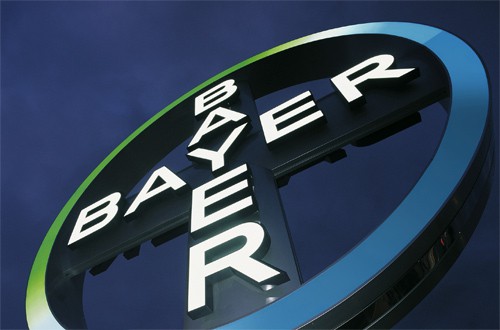
Bayer and Orion have bagged approval from the European Commission (EC) for their new prostate cancer treatment Nubeqa, setting it up to rival other approved treatments from Pfizer/Astellas and Johnson and Johnson.
The EC has approved Nubeqa (darolutamide) as a treatment for men with non-metastatic castration-resistant prostate cancer (nmCRPC), which has become an increasingly competitive therapy area.
The EU approval comes almost eight months after the US Food and Drug Administration (FDA) approved the therapy, also under the Nubeqa brand name. The FDA approval came three months ahead of the expected deadline, and was based on the same study results that won Nubeqa approval in the EU.
Those results came from the phase 3 ARAMIS trial, which compared Nubeqa to placebo when given as an add-on to androgen deprivation therapy (ADT).Nubeqa demonstrated a significant improvement of metastasis-free survival in the treatment arm, with a median of 40.4 months compared to 18.4 months in the placebo plus ADT arm.
Bayer and Orion reckon they have an advantage over their rivals thanks to Nubeqa’s favourable safety profile, with the most frequent adverse reaction to the therapy in the ARAMIS study being fatigue.
“With the authorisation of darolutamide in the EU, physicians in Europe now have a new therapeutic option with generally manageable side effects that delays the development of metastases in men with prostate cancer when compared to placebo and ADT alone,” said Melissa Rowe, director of medical affairs for speciality medicine at Bayer UK.
“This authorisation represents a meaningful advancement in the fight against prostate cancer,” she added.
Nubeqa’s rivals in the prostate cancer market include J&J’s Erleada (apalutamide) – its follow-up to its Zytiga (abirterone) brand which is now threatened by generic competition – and Pfizer/Astellas’ Xtandi (enzalutamide).
For now, Nubeqa is only approved in the non-metastatic prostate cancer setting, but Bayer is also looking to extend its reach into the metastatic therapy area.
It has an ongoing phase 3 trial called ARASENS that is testing Nubeqa in metastatic hormone-sensitive prostate cancer (HSPC), with results due in 2022. Xtandi and Erleada have been fighting for dominance in the HSPC, which means that Nubeqa will have to prove its efficacy if it is to make a dent in this hotly contested market.
In the phase 3 ARCHES trial, Xtandi in combination with ADT reduced the risk of cancer worsening or death by 61% compared to ADT alone in HSPC patients. In a follow-up study, named ENZAMET, the drug also reduced the risk of death by 33% compared with other non-steroidal androgen-fighting drugs.
J&J’s Erleada also demonstrated a reduction in risk of death, cutting the risk by 33% when added to ADT, compared to treatment with placebo and ADT. After two years’ follow-up 84% of patients treated with Erleada and ADT were still alive compared to 78% in the placebo group.




